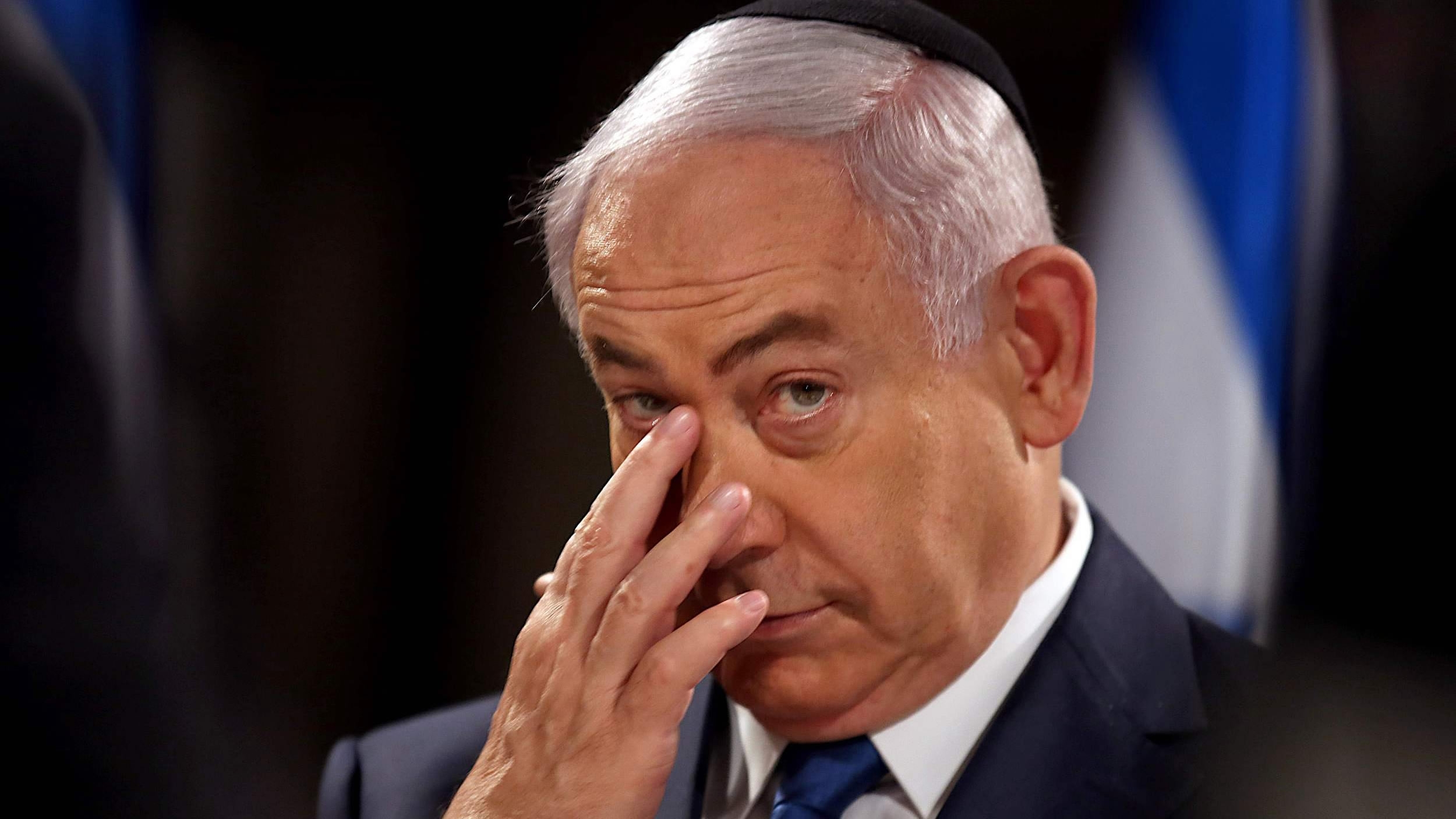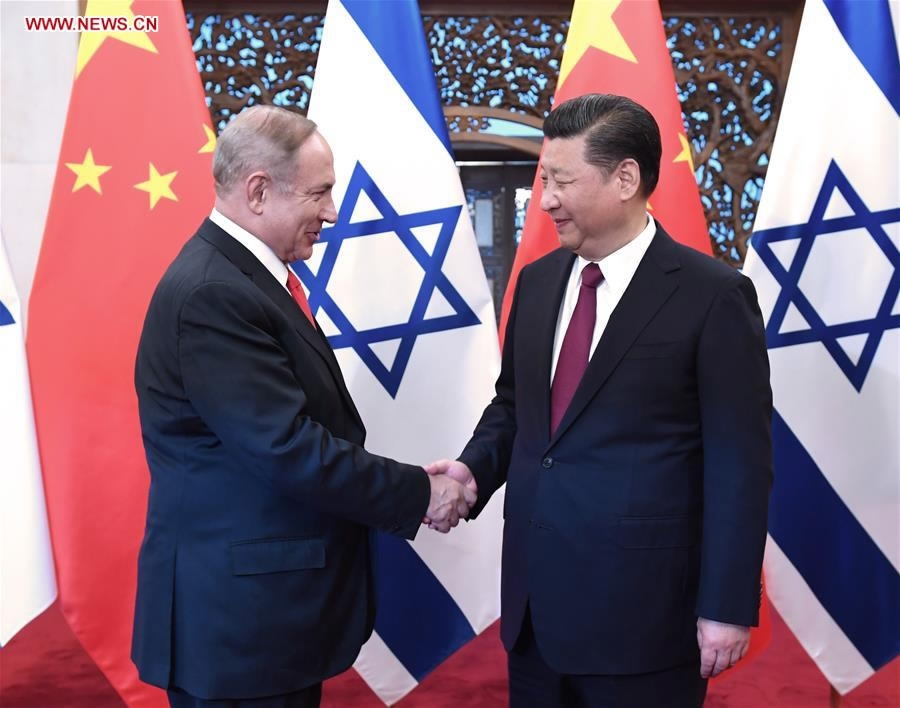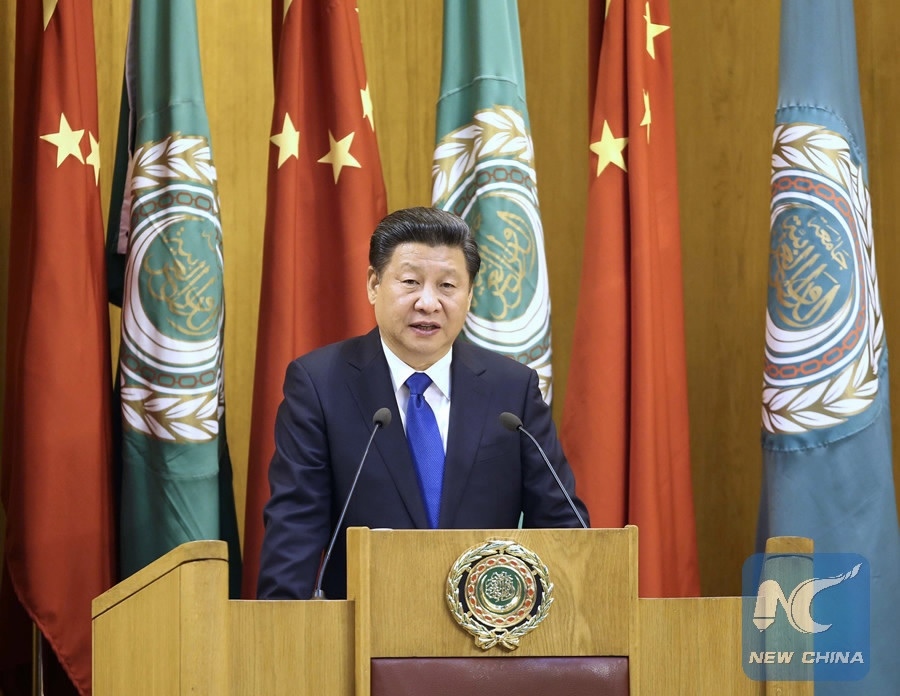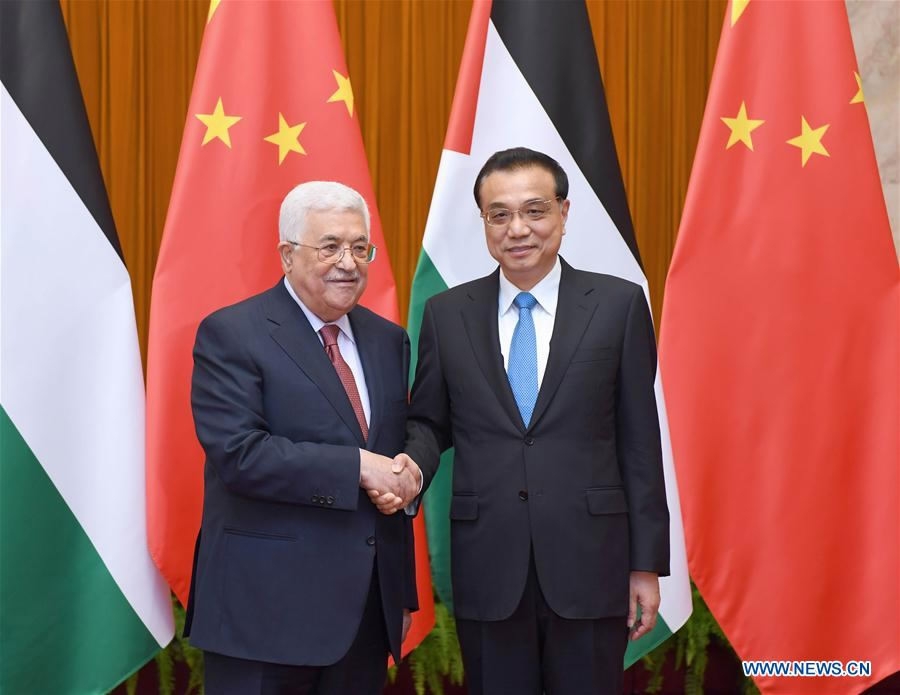
Politics
16:49, 21-Jul-2017
Was Netanyahu right in what he said about China in private?

Israeli Prime Minister Benjamin Netanyahu has stated that Beijing is not as fussy as the European Union about the prickly political issues between Israel and Palestine in hot mic comments during what was supposed to be a closed-door meeting with Central European leaders in Budapest.
Netanyahu was blasting the 28-state bloc for conditioning closer ties with Israel with the progress of the stalemated peace talks, branding their approach as “crazy”.
“We have a special relationship with China. And they don’t care, they don’t care about the political issues,” Netanyahu told the leaders of Hungary, Slovakia, Czech Republic and Poland, unaware his comments were inadvertently being broadcast to journalists next door.
The prime minister’s statement holds two truths: the first is an objective reality, while the other arguably falls under the “alternative fact” category.
China’s increasingly flourishing economic ties with Israel have been in tandem with Beijing calling for respect of Palestinians’ legitimate rights to establish an independent state, urging the cessation of illegal settlement expansion on Palestinian lands and pushing to reignite lethargic peace talks between the two sides.
‘Marriage made in heaven’
2017 marks 25 years since diplomatic ties between China and Israel were established at a time Israelis and Palestinians were meeting in secret around the negotiating table in Oslo.
Within a quarter of a century, bilateral relations between the Middle Eastern country and the Middle Kingdom scaled up to heights that would not have been fathomable in 1992. The success of the two countries’ economic cooperation led Netanyahu to call their symbiosis a “match made in heaven”.

Chinese President Xi Jinping (R) meets with Israeli Prime Minister Benjamin Netanyahu in Beijing, China, March 21, 2017. /Xinhua Photo
Chinese President Xi Jinping (R) meets with Israeli Prime Minister Benjamin Netanyahu in Beijing, China, March 21, 2017. /Xinhua Photo
China is now Israel's third biggest trade partner in the world and the biggest in Asia, with trade volume reaching 11 billion US dollars in 2016 – up from a mere 50 million US dollars the year formal diplomatic relations were normalized. Experts say the figure could easily swell after a free-trade agreement, which the two sides have been hammering out since last year, is reached.
Israel, the world’s number one spender on R&D, has also lured China with its cutting-edge technologies. Since 2010, Chinese household names like Alibaba, Tencent and Baidu have injected hefty sums in high-tech Israeli companies – one billion US dollars in 2016 – as deals between Beijing’s Zhongguancun, known as the China's Silicon Valley, and Israel’s Silicon Wadi gained momentum.
Chinese investment has spanned across a variety of sectors including agriculture, food, med- and bio-tech industries, while benefiting from Israel’s innovation in green energy, cyber-security and medical research.
China is also exporting its infrastructure expertise to Israel, digging the Carmel tunnels in the northern port city of Haifa, laying tracks for Tel Aviv metro system, building a port in the coastal city of Ashdod and operating a deep-sea port in Haifa.
However, the coziness of its economic relations with Israel has not impeded China from implementing a pragmatic approach to the Israeli-Palestinian conflict within the scope of Beijing’s foreign policy principles.
Pushing for peace
While strengthening its steady ties with Israel, Beijing, the first non-Arab state to diplomatically recognize the Palestine Liberation Organization (PLO), has maintained and nurtured its relations with Palestine. It joined the international community in rejecting and condemning continued land grabs of Palestinian territory and opposed Israeli measures unconducive to peace efforts.

Chinese President Xi Jinping delivers a speech at the Arab League headquarters in Cairo, Egypt, on January 21, 2016. /Xinhua Photo
Chinese President Xi Jinping delivers a speech at the Arab League headquarters in Cairo, Egypt, on January 21, 2016. /Xinhua Photo
At times, Beijing’s stances on regional issues seemed to ruffle the feathers of the Israeli government.
While addressing the Arab League in Cairo in January last year, Chinese President Xi Jinping called for the establishment of a Palestinian state that enjoys "full sovereignty on the basis of the 1967 borders” with East Jerusalem as its capital. The Chinese leader reiterated the same stance earlier this week when meeting Palestinian President Mahmoud Abbas, while highlighting Beijing’s support for the two-state solution as a way to resolve the decades-long conflict.
The status of Jerusalem in any peace arrangement is one of the most contentious points facing Israeli and Palestinian negotiators. Israel took control of Jerusalem after the Six-Day War in 1967, and has since insisted the city must remain undivided despite Palestinians claiming East Jerusalem as the capital of their future state. The deadlock over which side will have its way has been a major stumbling block in advancing peace talks and a source of skyrocketing tension between the two parties.
China has also been vocal about its opposition to Israel’s annexation of Palestinian lands in the West Bank and East Jerusalem, and has repeatedly urged Israel to halt its settlement activity.
In December last year, the UN Security Council (UNSC) adopted resolution 2334 that slammed Israel’s establishment of settlements in Palestinian territory as a "flagrant violation under international law" with no legal validity. China was among the 14 countries that voted in favor of passing the document that called on Israel to “immediately and completely cease all settlement activities.”
The UNSC’s decision drew burning criticism from Israel, which summoned the ambassadors of 12 countries that upheld the resolution, including China, France, Russia and the UK, and threatened to temporarily curb working ties with them and limit visits of Israeli ministers to their countries.
Beijing’s views regarding Israeli settlements also seem to have impacted a deal struck in April which allows China a foothold in Israel’s residential construction sector and helps solve the latter’s labor shortage.
It was agreed that a total of 6,000 workers, including steel fixers, carpenters, tilers and plasterers, will be sent to Israel to help with construction projects – however they will not take part in building settlements in the West Bank or East Jerusalem in line with Beijing’s convictions.
Back in January, spokesperson for the Chinese Ministry of Foreign Affairs Geng Shuang noted that “China's position on the Palestine-Israel issue is consistent, clear and unchanged. We oppose building Jewish settlements in the occupied Palestinian territories including East Jerusalem and West Bank,” when responding to questions about whether Chinese workers would be building housing units in Palestinian territory.

Chinese Premier Li Keqiang meets with visiting Palestinian President Mahmoud Abbas at the Great Hall of the People in Beijing, on July 19, 2017. /Xinhua Photo
Chinese Premier Li Keqiang meets with visiting Palestinian President Mahmoud Abbas at the Great Hall of the People in Beijing, on July 19, 2017. /Xinhua Photo
Ahead of the Palestinian president’s visit to Beijing in 2013, Abbas Zaki, Fatah Party Commissioner for Relations with Arab Countries and China, shrugged off allegations that Israel and China are enhancing their relations with no regards to the progress made in the peace process.
“We know that China has interests in Israel, but it also has values and will not turn its back on Palestinian rights,” he noted, adding that “it does not only operate according to economic interests – China is a gift of God.”
Zaki’s remarks are exemplar in reflecting China’s calibrated approach towards Israel, Palestine and their chronic conflict, and reflect the careful consideration China places in preserving its reliable relationship with Israel without undermining its clear position in the Israeli-Palestinian dispute or negating its efforts to push for peace.

SITEMAP
Copyright © 2018 CGTN. Beijing ICP prepared NO.16065310-3
Copyright © 2018 CGTN. Beijing ICP prepared NO.16065310-3